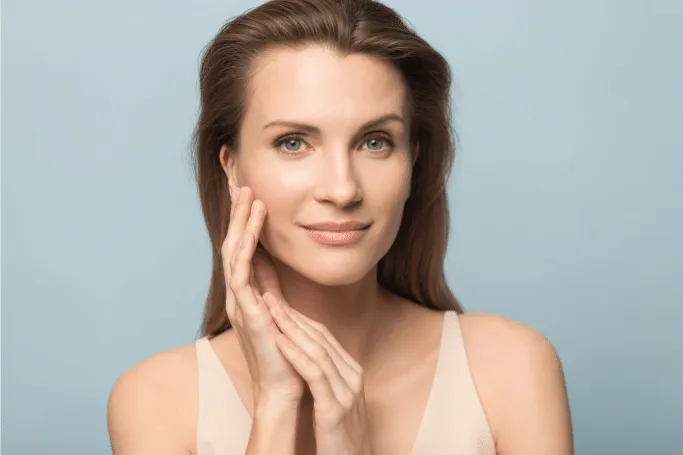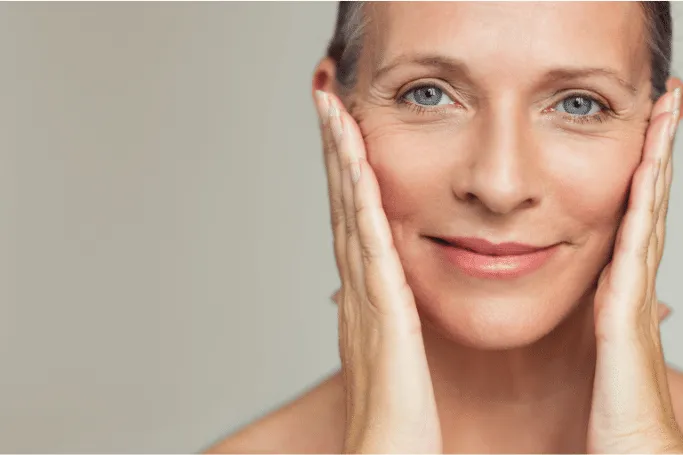How Emotions Affect Your Skin

The adage "laughing is the best medicine" has some scientific merit. According to studies, our emotions can have both good and bad effects on our body and change how our skin looks. According to Doris Day, MD, clinical assistant professor of dermatology at New York University Medical School and author of Forget the Facelift, "I usually remark that life is in your head." Meaning, how you feel and think has the biggest influence on how you look and are seen by others.
Learn how your emotions affect the way your skin looks.
Stress
Stress is the biggest enemy of youth among all emotions. Dr. Amy Wechsler, a dermatologist in New York City and adjunct assistant clinical professor of psychiatry at Weill Cornell Medical College, claims that stress can age your face far more quickly than natural aging. That's because it's the main stimulator of the troublesome hormone cortisol, which your body produces in large amounts while you're under stress. According to Dr. Wechsler, cortisol "taxes every organ, blood vessels become more fragile, new skin cells don't grow as quickly, and cell turnover may eventually stall by half."
That chocolate bar, bag of salty chips, or seductive beverage frequently look more enticing as ever during those stressful times. According to Dr. Day, eating different foods than usual and drinking more alcohol while you're anxious can contribute to dehydration. While dehydration can make wrinkles and fine lines appear more visible, the combination of a bad diet and sloppy skincare can cause breakout trouble for those who are prone to acne.
Anger
Arguments with your mother or having road rage can cause extra crow's feet. According to Jessica Wu, MD, an associate clinical professor of dermatology at the University of Southern California medical school and Daily Glow's dermatology specialist, "anger makes your facial muscles contract, which over time gives you wrinkles."
Anger can also interfere with your skin's ability to repair and regenerate. In a study that was published in the journal Brain, Behavior, Immunity, researchers divided volunteers into two groups—those who were prone to getting angry easily and those who were calmer and more Zen—and inflicted minor wounds on each of their arms. The angry individuals' healing and cell turnover processes took four times as long as those of the temper-controlled people. Researchers explained the occurrence by the high levels of cortisol found in irritable individuals, which prevents collagen creation—a vital component of skin repair and a contributor to wrinkles when production slows.
Depression
Similar to rage, melancholy is a facial weight that can result in wrinkles through repeated frowning and brow furrowing. According to recent research, the inability to frown may actually make you feel less depressed. This is because facial expression has such a profound impact on skin. In a study that was published in the Journal of Psychiatric Research, participants who had tried antidepressants without success received forehead Botox injections that stopped brow furrowing. According to Dr. Wu, depression was reduced on average by 47% in the control group and 9% in the placebo group six weeks later, indicating that our face muscles not only express but also regulate mood states.
Because the chemicals linked to the disorder might impede your body from healing cellular inflammation, long-term depression has terrible impacts on skin. According to Dr. Wechsler, these hormones have an impact on sleep, which is seen on our appearance as large, puffy eyes and a lifeless or dull complexion.
Embarrassment
According to Dr. Wechsler, blushing is a result of embarrassment traveling from the brain to the skin when neuropeptide receptors in the skin receive signals. The sympathetic nervous system's sensitivity controls how frequently and readily one blushes as well as how hot your skin feels.
According to the National Rosacea Society, blushing frequently and easily can be a sign of rosacea, a chronic disorder marked by enlarged blood vessels. Blushing should not be mistaken with flushing, which has a more intense red hue, affects the entire body rather than just the face, and is typically brought on by a temperature change or a spicy meal.
Fear
The brain sends a signal to the adrenal glands to release epinephrine, often known as adrenaline, whenever you feel threatened or in danger, regardless of whether the threat is real or imagined, according to Dr. Wechsler. The outcome is an increase in heart rate, which rushes blood to the body's large power muscles in case you need the extra energy to run quickly. In order to control and reduce bleeding if wounded, adrenaline also steals part of the blood from the skin and face and constricts blood vessels in the skin. According to Dr. Wechsler, the chemicals that produce terror can make you appear lifeless and pale as if you've just saw a ghost.
Related posts



